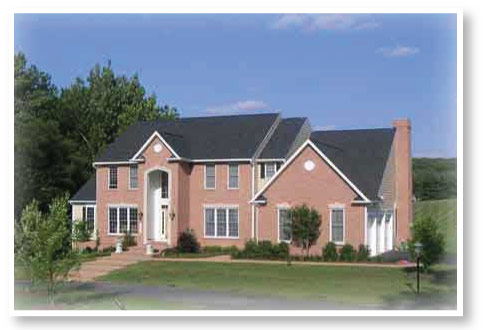Real Estate Investment: Return On Investment and Cash Flow Calculation
Real Estate Investment Articles | Housing Market News and AnalysisCapital Gains Tax Exemption
The tax law allows Individuals to exclude up to $250,000 in profit from the sale of a main home (or $500,000 for a married couple) as long as you have owned the home and lived in the home for a minimum of two years. Those two years do not need to be consecutive. In the 5 years prior to the sale of the house, you need to have lived in the house for at least 24 months in that 5-year period. In other words, the home must have been your principal residence.
You can use this 2-out-of-5 year rule to exclude your profits each time you sell or exchange your main home. Generally, you can claim the exclusion only once every two years. Some exceptions do apply.
Exception to the Requirement
There are exceptions to the primary residence exclusion requirements. You can still claim an exclusion, but the maximum amount of gain you can exclude will be reduced, if either of the following is true:
- Change in the Location of Your Employment
you may qualify for the exception if you change jobs. The new place of employment must be at least 50 miles farther from your home than the former place of employment was. This is known as the "50 mile safe harbor rule".
- Health Concerns
you can qualify for the exception if the sale of your main home is to obtain, provide, or facilitate the diagnosis, cure, mitigation, or treatment of disease, illness, or injury of a qualified individual.
Qualified individuals include: parents, grandparents, stepparents, children, grandchildren, stepchildren, adopted children, brother, sister, stepbrother, stepsister, half brother, half sister, mother-in-law, father-in-law, uncle, aunt, nice, nephew
A "physician safe harbor" is established if a licensed physician recommends a change of residence for one or more of the above reasons.
- Unforeseen Circumstances
The sale of your home is because of an event that you did not anticipate before purchasing and occupying your main home. To qualify you must meet one of the following:
- An involuntary conversion of your home. For example, the home was condemned.
- The home was destroyed by a natural disaster (earthquake, fire, tornado) or man-made disaster (war, terrorism).
- Death
- Termination of employment making the individual eligible for unemployment compensation.
- A change in employment or self-employment status that results in your inability to pay reasonable living expenses. These include food, clothing, medical expenses, taxes, transportation, court ordered payments, and expenses reasonably necessary to produce income.
- Divorce or legal separation under a decree of divorce.
- Multiple births resulting from the same pregnancy, such as twins.
Partial Exclusion
You can exclude a portion of your gain if you are selling your home and lived there less than 2 years and you meet one of the three exceptions. You calculate your partial exclusion based on the amount of time you actually lived in your home. Count the number of months you actually lived in your home. Then divide that number by 24. Then multiply this ratio by $250,000 (if unmarried) or by $500,000 (if married). The result is the amount of gain you can exclude from your taxable income.
Loss on the Sale of a Home
You cannot deduct a loss from the sale of your main home.
Calculating Your Cost Basis and Capital Gain
Just like calculating capital gains, the formula for calculating the gain or loss involves subtracting your cost basis from your selling price.
The formula for calculating your cost basis on your main home is as follows:
- Purchase price
- + Purchase costs (title & escrow fees, real estate agent commissions, etc.)
- + Improvements (replacing the roof, new furnace, etc.)
- + Selling costs (title & escrow fees, real estate agent commissions, etc.)
- - Accumulated depreciation (for example, if you ever took the office in the home deduction)
- = Cost Basis
And then calculating your profit or loss would be:
Gain or Loss = Selling price - Cost Basis
If the resulting number is positive, you made a profit when you sold your home. If the resulting number is negative, you incurred a loss.
Taxable Gain = Gain - Maximum or partial Exclusion
When you own a primary residence and turn it into a rental property you will be unable to take the same tax deductions as you would if it were a primary residence. If you later decide to change the property ownership from yourself to an LLC - a limited liability company - that will also affect your taxes, on both federal and local level.
Latest News and Articles

Investor's Resources Center
Check house price
Search homes
Free landlord forms
Tenant credit screen
Foreclosure Search
www.foreclosure freesearch.com
www.freeforeclosure database.com


